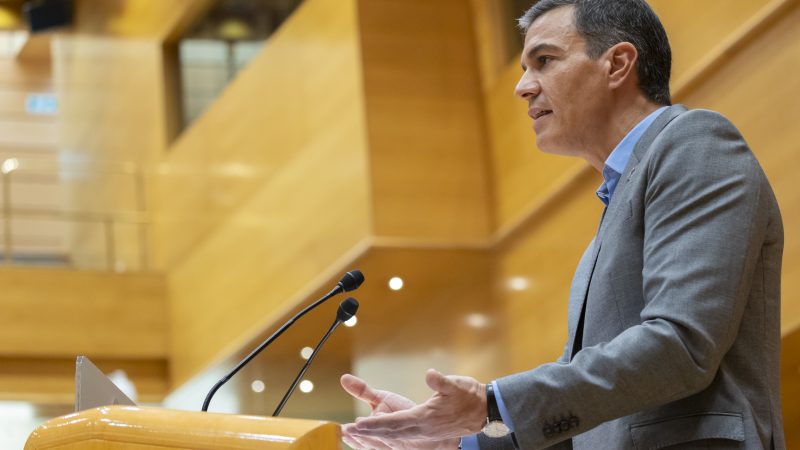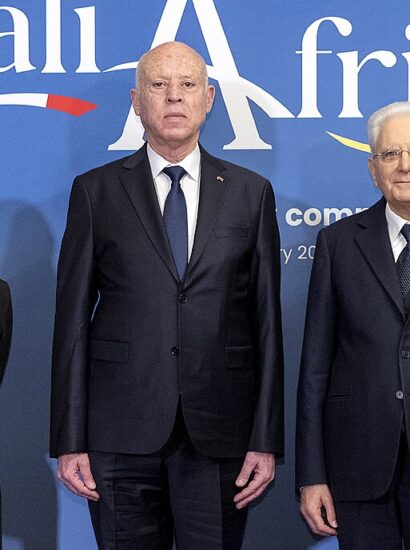Spain will hold snap elections on July 23rd. This date was not the one foreseen in the Spanish calendars: the last Spanish elections were on November 10, 2019, so the following ones were expected in December. So what warranted Spanish snap elections to be held on July 23rd?
Big Wins For The Right And A Waning Left After The Municipal Level
We have to take into account the very important elections that took place on May 28, 2023 in Spain. These elections were local (8,130 municipalities) and regional, although not for all Spanish regions, only 12 of the all 17 regions in Spain, were included: Aragon, Asturias, Canary Islands, Cantabria, Castilla-La Mancha, Community of Madrid, Community of Valencia, Extremadura, Balearic Islands, La Rioja, Navarra and Region of Murcia.
In those elections a large swing to the center-right was recorded.
As far as the municipal elections are concerned, there were a total of 23,412 councillors for the PP (Partido Popular) compared to 20,784 for the PSOE (Partido Socialista Obrero Español). Another big winner of the local elections was the conservative VOX party, which obtained 1,695 councillors, having obtained in 2019 only 530 councillors. The big loser was the Podemos party (extreme left), going from having 696 councillors in last election to only 200 councillors. The nationalist parties had results quite similar to the previous elections. Junts per Catalunya (center-right pro-independence Catalan party) obtained 2,677 councillors, and ERC (left-wing pro-independence Catalan party) obtained 2,868 councillors. What stands out in the pro-independence Catalan nationalism was Aliança Catalana, a party that fights against massive immigration, that wants to protect the Catalan culture, values and traditions, and has been often cited as the “Catalan Vox”, although they refuse this comparison. On the side of the Basque nationalists, the PNV (Basque pro-independence center-right) obtained 986 councillors, that is down by 69 councillors, and EH BILDU (Basque pro-independence extreme left and heirs of the ETA terrorists) obtained 1,399 councillors, up by 137 councillors.
In summary, the PP governs in 3,223 municipalities (216 through pacts, 135 of them with VOX), 40% of the total number in Spain and where 46.5% of the population resides.
Recent Regional Elections: The Spanish Center Is Missing in Action
On the regional elections there has also been a return to the center-right. In the Community of Madrid, Ayuso swept with absolute majority and Podemos disappears.
In the Community of Valencia, PP doubles its results and will govern in coalition with Vox.
Castilla-La Mancha is one of the few regions in which PSOE will govern with absolute majority in these elections. Navarra is still to be decided, UPN (regionalist party of Navarra) obtained 15 seats, but the absolute majority is at 26, the PSOE obtained 11, it may try a three-way government with minority forces and seek the abstention of EH BILDU, although it is possible that the PP will cede votes so that EH BILDU cannot get anything in return. In Aragon, PP and VOX are almost certain to govern together, since they have a majority and have already made a pact for VOX to preside over the Aragonese courts and there is already talk of a coalition government in which VOX would obtain at least two councils. In Asturias, the PSOE could govern but would have to agree with IU-Más País and Podemos (extreme-left parties). In Cantabria, PP and Vox could have governed together, but the PRC will leave “for free” its votes so that VOX does not govern, the PP, which prefers to govern alone, has accepted this agreement. In La Rioja, the PP will govern with an absolute majority. In Extremadura, PP and VOX have an absolute majority, but Maria Guardiola is resisting, as she does not want to govern with them and there may even be a repeat election. Guardiola claims that with such a low percentage of votes they have no right to demand to be in the government, she wants their votes “for free” to be able to govern alone, but Vox wants to enter the government. Likewise, Guardiola has repeatedly insulted Vox and its leaders, calling them chauvinists, climate change deniers, homophobes and dehumanizers for fighting illegal immigration. In Murcia, PP and Vox can govern in coalition, but the same thing happens as in Extremadura, PP has obtained much more votes and they want to govern alone, but Vox wants to enter the government and a repeat election is not ruled out. In the Balearic Islands, there will surely be a government between PP and Vox, they are still negotiating, but everything seems to be going according to plan. In the Canary Islands, Coalición Canaria (Canary regionalist party) will govern with PP.
We should note that the big loser of both municipal and regional elections is Ciudadanos: the center party has lost power in many places and has gone to absolute non-existence, in fact, they have decided not to run in the general elections. Let us recall that in the April 2019 elections (before the electoral repetition that same year) they took 57 deputies, that is, 15.86% of the votes and being the third political force.
Sánchez’s Attempt At Being The Last Left Standing
Having reviewed the last electoral appointment, we now have a perspective of the Spanish situation. Prime Minister Pedro Sánchez, seeing the electoral debacle, decided to bring forward the elections, since the passage of time would have penalized his narrative. Likewise, the near disappearance of Podemos may be another reason why he may think that everyone would vote en masse for the only left that can stop the right-wingers. There are some who put the summer, that is, vacation time as a conditioning factor, I personally do not think it will have much of an effect, but yes, there will be many Spaniards on vacation.
What worries is that with this there may be more postal voting and this is not usually reliable, in these same elections there has been evidence of vote buying in several Spanish regions and municipalities, some of them by members of the PSOE and others are suspected to have been part of a Moroccan strategy, especially in Ceuta and Melilla.
One of the particularities that Sanchez did not expect was the good reception that the SUMAR party has had. SUMAR is a far left party founded by second vice-president and minister of labor Yolanda Diaz.
It is a party that is almost the same as Podemos, they have the same insignias and many of those who worked in Podemos have moved there. In these elections they go with Podemos in the lists, but surely they will end up merging or go together in all elections.
How are the polls? Most of the polls, if not all of them, list the PP as the winner. According to all the polls, the PP would be between 120-140 seats, that is, between 31% and 34% of the votes.
The PSOE is between 90-105 seats, that is, between 24% and 27% of the votes. Vox is between 40-50 deputies, although most polls put it down, although it is an unknown, since in the vast majority of polls they always put Vox down and then they usually get a higher result. Finally, Sumar is between 30 and 40 seats, if only Podemos had run, surely the forecasts would have been between 10 and 20 seats. The absolute majority of the Spanish chamber is 176 seats.

Overview of the Chamber of the Congress of Deputies, during the commemorative act of the 40th Anniversary of the Spanish Constitution. (Photo: Government of Spain / Wikimedia Commons)
PP Might Turn To Regional Forces
One of the big unknowns will be what the PP will do. We have already seen in the explanation above that the PP is not comfortable with a Vox government. Although they could have governed in several communities, they have not yet done so, even preferring a repeat election, as is the case of Extremadura and Murcia. Depending on the result, the PP may seek the votes of the non-independent regionalist parties and the abstention of the PSOE to avoid a coalition government with Vox. It will depend on the outcome of both for us to see a center-right coalition government. Feijoo has shown himself to be more of a centrist, in which he has even stated that he once voted for Felipe González, the first socialist president. In addition, he has repeatedly proposed to support the most voted list, that is to say, the party with the most votes will be supported so that it does not have pacts with “extreme” parties. Only a strong Vox could force a coalition government.
It should be noted that this type of government, that is, EPP and ECR parties, is not something new.
In Finland and Italy there are already coalition governments, besides, in Spain there is Castilla y León, Valencia and soon Aragón and Balearic Islands, with Extremadura and Murcia unresolved, which if so, would already be 6 coalition governments of PP and Vox, without forgetting all the pacts in town halls. Another key will be what Pedro Sánchez decides if he loses the elections, if the PSOE proposes the exit of Sánchez and an abstention so that the PP governs alone could convince Feijoo, since the story would be “we have taken Sánchez out of politics”. Nothing is clear, the two possibilities will be seen.







